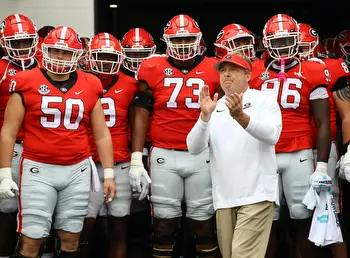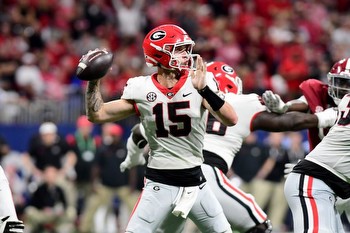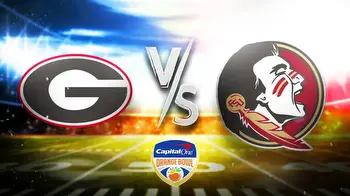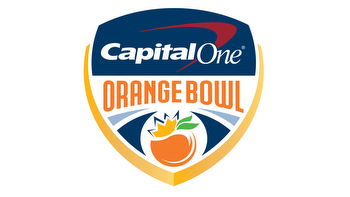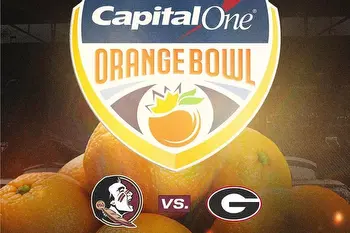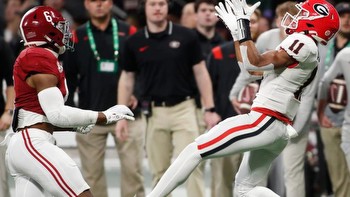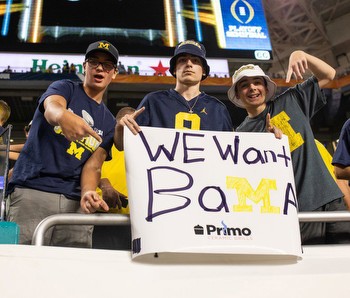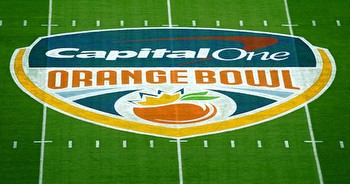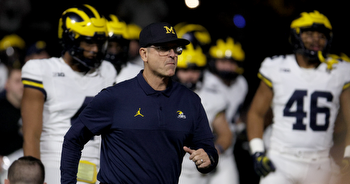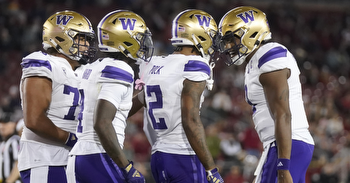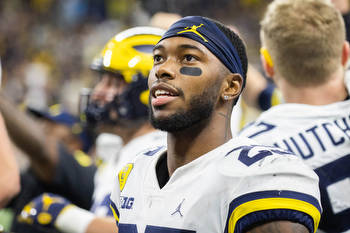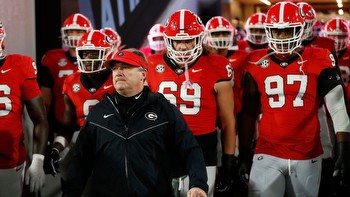Who Plays in the Orange Bowl This Year? Teams, Date, Schedule

The Capital One Orange Bowl is one of the biggest games in the college football bowl season. With that being said, let’s call it like it is, both Georgia and Florida State are disappointed to be playing in this game and missing the College Football Playoff. Regardless, let’s look at the matchup, TV options, and more for the game.
When is the Orange Bowl in 2023?
Georgia and Florida State are set for the Orange Bowl on Saturday afternoon.
Looking for great geat to support your favorite teams? Check out Fanatics!
Who Plays in the Orange Bowl 2023?
It’s 12-1 Georgia from the SEC vs 13-0 ACC Champion Florida State in the Capital One Orange Bowl.
2023 Orange Bowl Odds
Due to Florida State’s quarterback situation, Georgia is a major favorite vs Florida State. Let’s take a look at the odds.
Use that lastest DraftKings or FanDuel promo code when betting on the Orange Bowl.
2023 Orange Bowl Matchup: Florida State vs Georgia
Let’s recap how the teams got to this point. Florida State won the ACC Title while Georgia lost in the SEC Championshp game to Alabama.
Florida State (13-0 overall, 8-0 in ACC)
The Seminoles did everything they were supposed to. They went undefeated in the regular season and, despite losing their star QB Jordan Travis late in the season, they went on to win the ACC Title for a 13-0 season. Then, the College Football Playoff Committee punished them for Jordan Travis’ injury and left FSU out of the playoff in favor of 12-1 Big 12 Champ Texas and 12-1 SEC Champ Alabama.
Florida State beat LSU to open the season and survived close calls to Boston College, Clemson, and Miami on its way to a 16-6 win over Louisiville in the ACC Championship. Jordan Travis was lost for the season with a leg injury in game 11 vs North Alabama.
For the Orange Bowl, it’s down to Brock Glenn at quarterback after Tate Rodemaker transferred. Glenn has thrown for 90 yards on the season and has 1 rushing touchdown. Top running back Trey Benson (905 yards, 14 TDs) is moving on to the NFL along with WR Keon Coleman (658 receiving yards, 11 TDs).
Georgia (12-1 overall, 8-0 in SEC)
The Georgia Bulldogs ran over the SEC East on its way to the SEC Championship where it fell to Alabama. Before the loss, the Bulldogs had won 29 games in a row along with the last two national championship games. After the loss, the College Football Playoff Committee left Georgia out of the top 4 and the Bulldogs are now set for the Orange Bowl.
Georgia was dominant in wins over Kentucky, Vanderbilt, Florida, Ole Miss, and Tennessee in SEC play. They played tight with Missouri but pulled off a 30-21 win on their way to another SEC Title game appearance.
QB Carson Beck threw for 3,738 yards with 22 touchdowns while adding 4 rushing touchdowns. The leading rusher for the Bulldogs is Daijun Edwards as he ran for 818 yards with 11 touchdowns. Tight end Brock Bowers is questionable with an ankle injury. He caught 6 touchdowns and had 713 yards receiving in 10 games this season.
History of the Orange Bowl
The Orange Bowl has been a longstanding tradition in the Miami metropolitan area since 1935. Among the oldest bowl games in the country, it is only surpassed by the Rose Bowl. Initially held at Miami Field, the game later moved to the iconic Miami Orange Bowl stadium in 1938 and eventually found its current home at Hard Rock Stadium in Miami Gardens in 1996.
Capital One has been the proud sponsor since December 2014, officially naming it the Capital One Orange Bowl, following sponsors like Discover Financial and FedEx.
In its early years, the Orange Bowl lacked defined conference tie-ins, often featuring matchups between southeastern and central or northeastern teams. The Big Eight Conference held a strong association with the Orange Bowl from the 1950s to the mid-1990s.
From 2007, the Orange Bowl became the host for the ACC champion, except when involved in the national championship playoff. It has been a key player in various bowl alliances, including the Bowl Coalition and the Bowl Alliance.
After its role as the BCS National Championship Game, the Orange Bowl became part of the College Football Playoff in 2014, hosting national semifinals and maintaining its status as one of the prestigious New Year’s Six bowl games.

